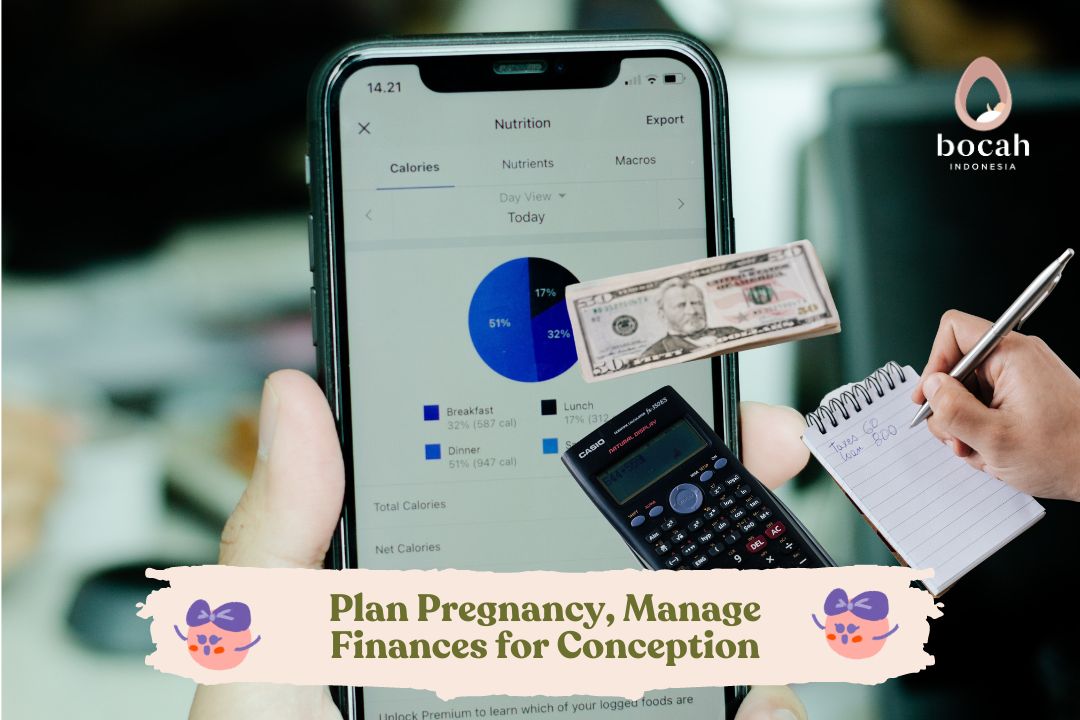Financial Planning Before Pregnancy

In addition to preparing physically for pregnancy, having a solid financial plan before pregnancy is also very important.
Once you become parents, you will face a number of new expenses, such as buying baby essentials, healthcare, and your child’s education. Having a good financial plan before pregnancy can help avoid financial stress and build a well-planned future.
There are several steps you can take, starting with listing your income and expenses and identifying areas that can be reduced or optimized. Additionally, consider having an emergency fund to handle unexpected events during and after pregnancy.
The Importance of Financial Planning Before Pregnancy
When you decide to have a child, the costs associated with pregnancy, childbirth, and baby care will become new responsibilities. Here are some reasons why financial planning before pregnancy is important:
1. Having an Adequate Pregnancy Fund
A pregnancy fund is a reserve of money that can help you manage medical expenses and daily living costs during pregnancy. This is crucial because the costs of childbirth and healthcare related to pregnancy can be quite expensive. By having an adequate pregnancy fund, you can feel more at ease and ensure your financial needs are covered during this period.
2. Planning Expenses for Baby Preparation
In addition to medical and healthcare costs, you also need to prepare for expenses related to baby preparation. This includes purchasing baby supplies, clothes, and other baby equipment. In financial planning before pregnancy, it’s important to identify these expenses and allocate sufficient funds to meet your baby’s needs.
Tanya Mincah tentang Promil?
Tips for Creating a Budget Before Pregnancy
Here are some tips for creating a budget during and after pregnancy:
1. List Monthly Expenses
The first step in creating a budget is to review your monthly expenses as a couple. Identify regular expenses such as bills, food, transportation, and others. This will help you gain a better understanding of your current financial situation and find ways to make more cost-effective financial solutions.
2. Set Financial Priorities
After reviewing your monthly expenses, determine your financial priorities during and after pregnancy. Should you allocate more money for a pregnancy fund, baby preparations, or paying off debt? By prioritizing needs and goals, you can manage your budget more effectively.
3. Create a Realistic Spending Allocation
Once you know your monthly expenses and financial priorities, create a realistic spending allocation. Make sure to allocate enough funds for daily needs, pregnancy savings, baby preparation, and any other expenses that may arise during the pregnancy journey.
4. Consider Prenatal and Delivery Costs
Prenatal costs include doctor visits, lab tests, and ultrasound scans. Delivery costs include hospital fees, doctor fees, and other medical procedures. Knowing these estimated costs will help you plan your finances better.
5. Understand Pregnancy Health Insurance
Consider enrolling in pregnancy health insurance. Learn about the coverage it provides, whether it includes pregnancy, delivery, and baby care. Review the insurance plan and discuss it with the provider to ensure you have adequate coverage.
6. Planning for Baby Care Costs
Besides pregnancy and delivery costs, you also need to consider baby care expenses after birth. These include routine checkups, vaccinations, medical care, and daily needs. Ensure you allocate enough funds to cover these expenses.
7. Considering Childcare Costs
After giving birth, you should also prepare for future childcare costs, including daycare and other necessities. Factoring these costs into your financial planning will help you manage your finances better.
8. Plan for Education Savings
Start setting aside a portion of your income for your child’s education savings. There are various types of education savings accounts available, such as education savings accounts. Investing early will help you accumulate enough funds for your child’s future education costs.
9. Seek Financial Assistance
If you face financial difficulties during pregnancy or after the baby is born, don’t hesitate to seek financial assistance. There are various financial aid programs and resources available to help pregnant women and new mothers. Don’t hesitate to seek the information and support you need.
10. Prepare an Emergency Fund
Having an emergency fund is an important step in financial planning before pregnancy. This fund provides financial protection in case of unexpected events, such as job loss or medical emergencies.
Aim to have an emergency fund that covers 3 to 6 months of living expenses. This will give you peace of mind, allowing you to focus on your pregnancy and baby care without worrying about financial stress.
Those are some financial planning tips before pregnancy. Proper financial preparation can provide peace of mind for you. It’s also a good idea to consult with parents or those who have had long-term family experience.
For those of you seeking information on how to get pregnant quickly or pregnancy programs, visit the Bocah Indonesia website.
Source:
- Taylor, Kathryn, etc. (2021). Financial Hardship Among Pregnant and Postpartum Women in the United States, 2013 to 2018. PMC8556621 https://www.ncbi.nlm.nih.gov/pmc/articles/PMC8556621/
- Parents. (2023). A Nine-Month Plan for Getting Your Family’s Finances in Order Pre-Baby










